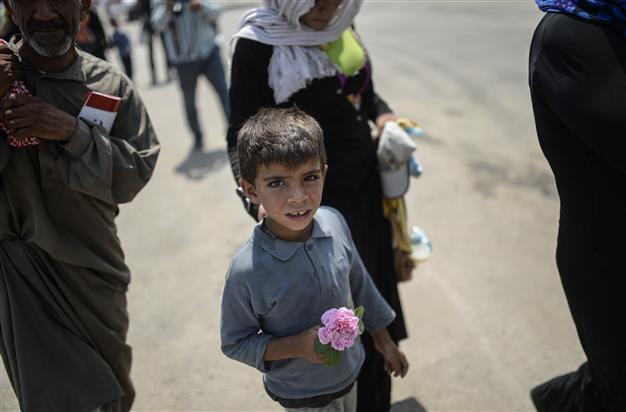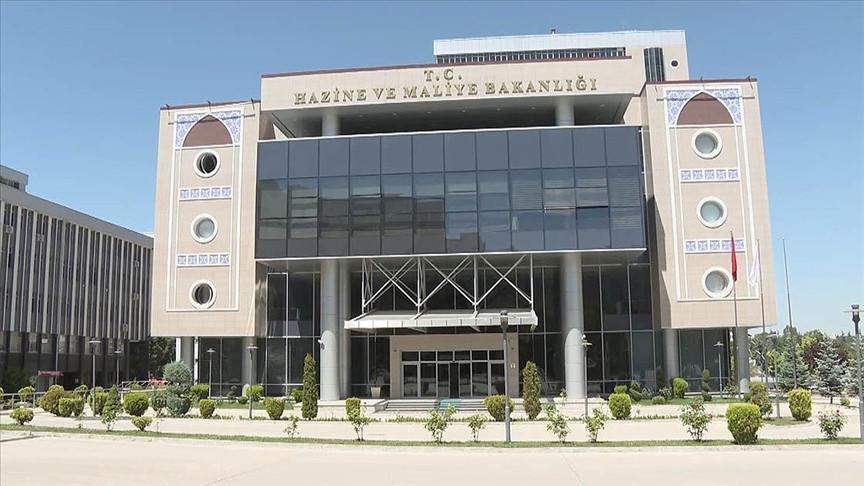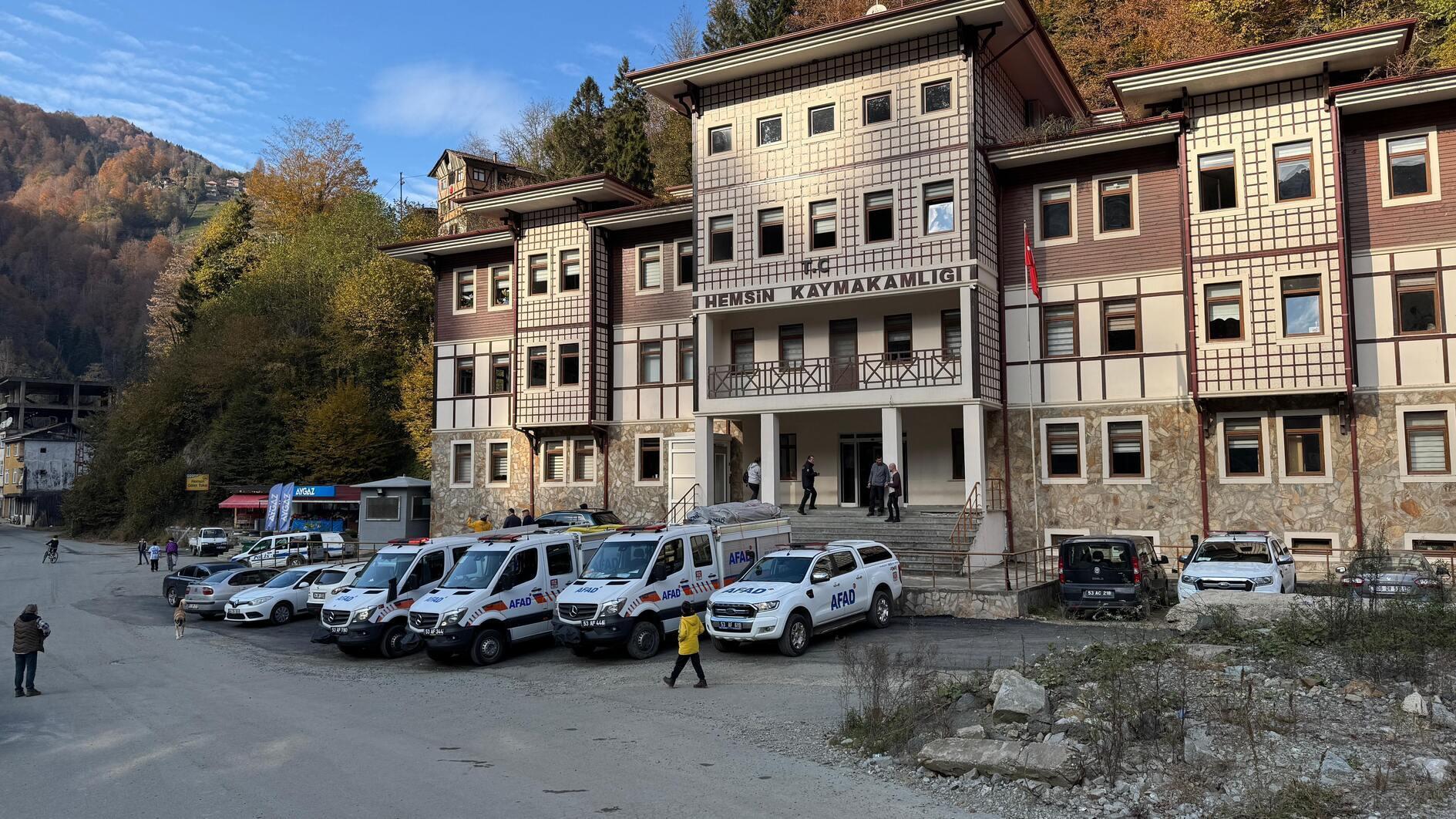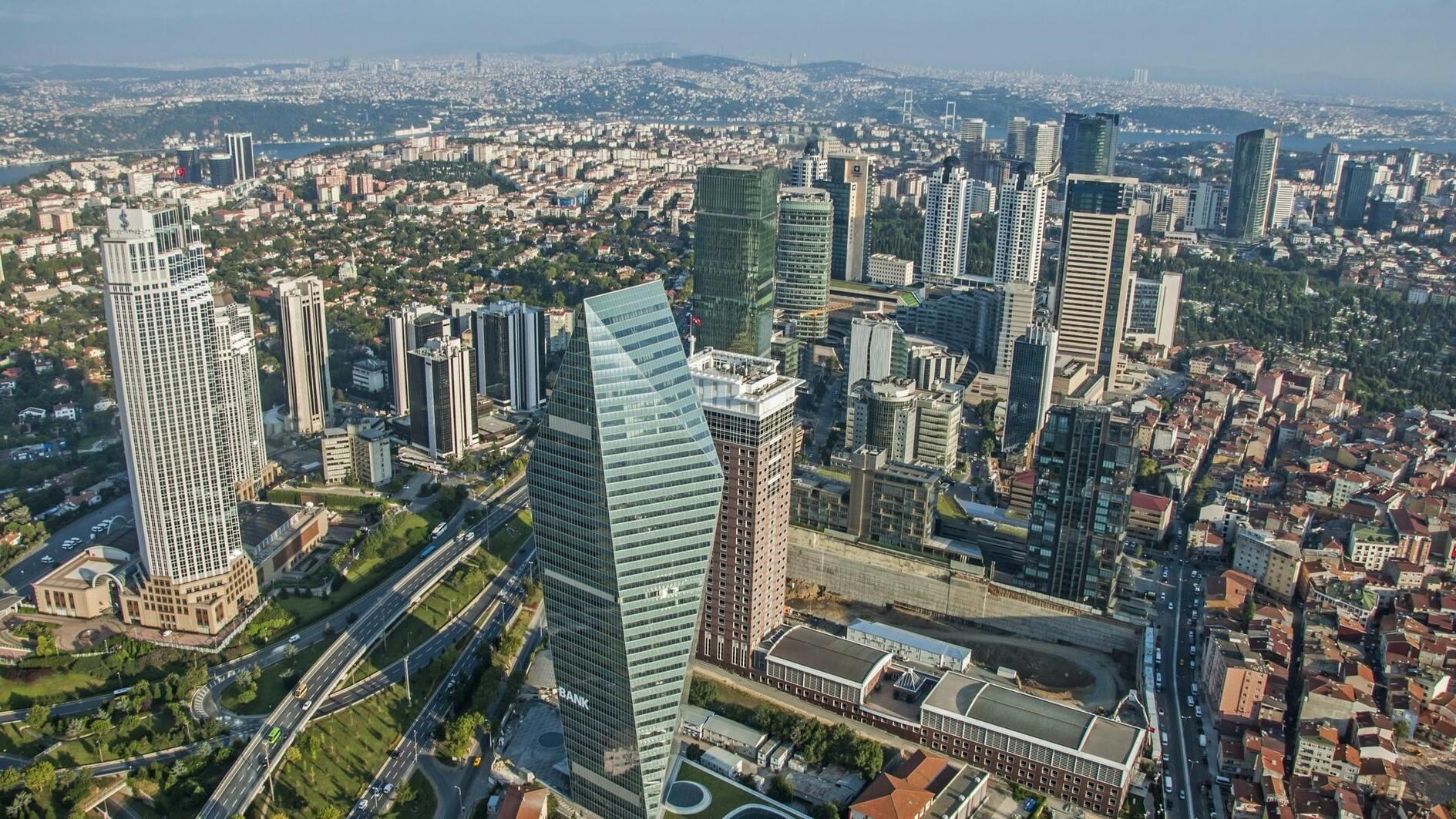Number of Syrian refugees tops four million mark: UN
GENEVA - Agence France-Presse

A Syrian boy holds a rose after arriving in Turkey at the Akcakale border crossing, in Sanliurfa province on June 15, 2015. AFP Photo
More than four million Syrians have fled the civil war ravaging their country to become refugees in the surrounding region -- a million of them in the past 10 months alone, the United Nations said on July 9."This is the biggest refugee population from a single conflict in a generation," UN refugee chief Antonio Guterres said in a statement.
"It is a population that needs the support of the world but is instead living in dire conditions and sinking deeper into poverty," he warned.
The UN refugee agency said a surge in new refugee arrivals in Turkey had pushed the total number of Syrian refugees in neighbouring countries to over 4,013,000 people.
Just over 10 months ago, at the end of August 2014, the number of registered Syrian refugees stood at three million, UNHCR said, adding that if Syrians continue fleeing their country at the same pace it expects the number to balloon to 4.27 million by the end of the year.
The current number of refugees is already by far the highest handled by UNHCR for a single conflict in nearly a quarter century, since the agency was assisting some 4.6 million Afghan refugees in 1992, a spokeswoman told AFP.
More than 230,000 people have been killed in Syria since anti-government protests erupted in March 2011, precipitating a civil war pitting pro-regime forces, rebels and jihadist groups against each other.
In addition to the millions who have fled Syria, 7.6 million have been displaced inside the war-torn country, "many of them in difficult circumstances and in locations that are difficult to reach," UNHCR said.
Syrians are so desperate to escape the nightmare conditions in their country that they made up a third of the 137,000 people who flooded across the Mediterranean to Europe during the first half of 2015 -- many in rickety boats and at the mercy of human traffickers, UNHCR figures show.
"Worsening conditions are driving growing numbers towards Europe and further afield," Guterres said, but stressed that "the overwhelming majority remain in the region."
Thursday's announcement came amid reports that Turkey -- already hosting some 1.8 million Syrian refugees -- is preparing a giant new refugee camp to house 55,000 people amid concerns that an anticipated major escalation of the conflict in the Syrian province of Aleppo could spark a growing exodus.
Another 1.17 million Syrian refugees have sought safety in neighbouring Lebanon, and now account for a quarter of inhabitants in that country.
Jordan meanwhile is hosting more than 629,000 Syrian refugees, Iraq counts nearly 250,000, Egypt has taken in nearly 132,500, and more than 24,000 others have sought refuge elsewhere in North Africa, the latest UNHCR figures showed.
In comparison, around 270,000 Syrians have sought asylum in Europe, UNHCR said.
The agency has estimated $5.5 billion is needed this year to help the Syrian refugees and the increasingly overwhelmed host communities in neighbouring countries, but warned it so far has received less than a quarter of that amount.
"This means refugees face tough new cuts in food aid, and struggle to afford life-saving health services or send their children to school," it cautioned.
UNHCR said life for exiled Syrians was becoming increasingly difficult.
Around 86 percent of all refugees living outside of camps in Jordan living below the poverty line of $3.20 per day, and 55 percent of Syrian refugees in Lebanon are living in sub-standard shelters, it said.
With Syria's bloody conflict well into its fifth year and no end in sight, the agency said refugees across the region were losing hope of returning home.
As they become increasingly impoverished and desperate, more and more of them are engaging in "negative coping practices", including child labour, begging and child marriages, it warned.
Competition for employment, land, housing, water and energy is also placing significant strain on already vulnerable host communities, UNHCR said, urging donors to step up and help ease the pain.
"We cannot afford to let them and the communities hosting them slide further into desperation," Guterres said.
















